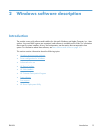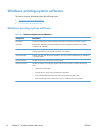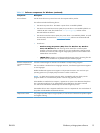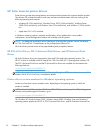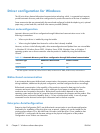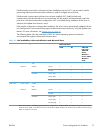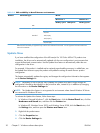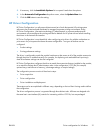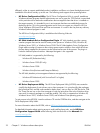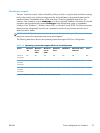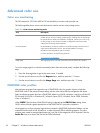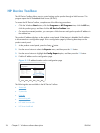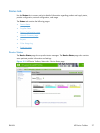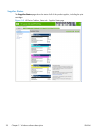5. If necessary, click the Installable Options list to expand it and show the options.
6. In the Automatic Configuration drop-down menu, select the Update Now item.
7. Click the OK button to save the setting.
HP Driver Configuration
HP Driver Configuration is a software architecture and set of tools that permits HP printing-system
software to be customized and distributed in managed corporate printing environments. Using
HP Driver Configuration, information technology (IT) administrators in corporate and enterprise
environments can preconfigure the printing and device defaults for HP printer drivers before installing
the drivers in the network environment.
HP Driver Configuration is most beneficial when configuring print drivers for multiple workstations or
print servers for print queues that share the same configuration. Two types of features can be
configured:
●
Product settings
●
Printing-preferences settings
The driver is configured to match the product hardware so that access to all of the product accessories
through the driver is enabled correctly (for example, for duplexing units and additional input trays).
Most driver-feature settings can also be configured.
HP Driver Configuration configures the driver to match the accessories that are installed on the product,
or to match the settings that IT administrators make in the configuration (.CFG) file (for example,
optional trays, total amount of memory, job-storage settings, or mopier settings).
The configuration process consists of three basic steps:
●
Driver acquisition
●
Driver configuration
●
Driver installation and deployment
These steps can be accomplished in different ways, depending on the tool that is being used to define
the configuration.
The driver configuration process is supported through three distinct tools. All three are designed with
the same basic user-interface (UI) controls for interacting with the .CFG file, but are packaged
ENWW
Driver configuration for Windows
21



